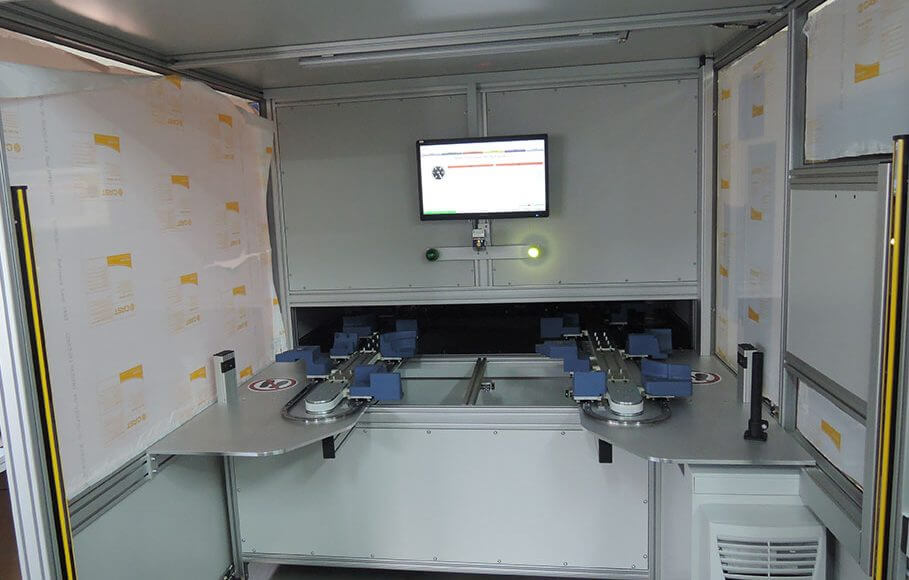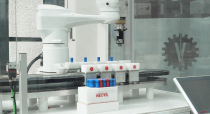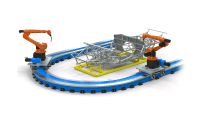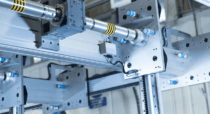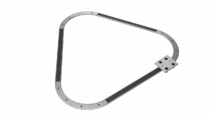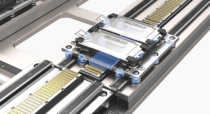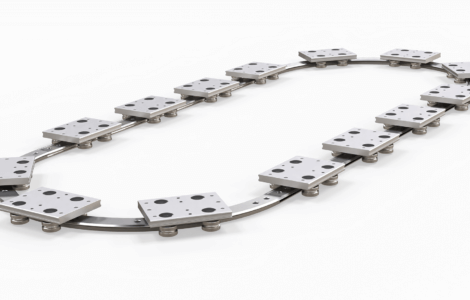L &_P Elekroautomatisations based in Willich, Germany develop and design highly accurate test systems, which often entail the use of linear guide systems.
“We have made it our job to replace manual processes with automated systems that are focussed on quality and saving time”, says Heinz Panzer, L&_P Managing Director. In 2015 the designers were tasked to design new highly-efficient testing equipment for a BMW supplier to test vehicle doors. The application required a high precision, low maintenance linear guidance solution: the design team were quick to contact industry leader HepcoMotion.
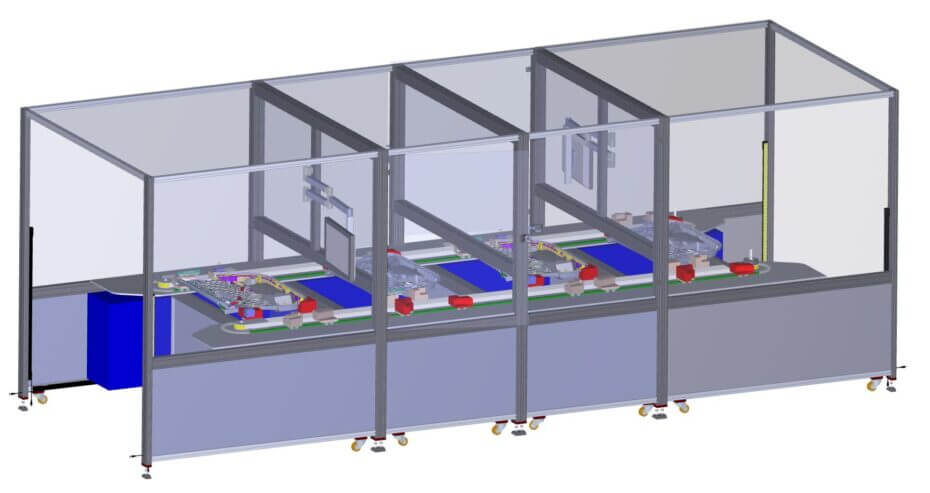
The application was for an established customer, who was already running nine ‘DoorCheck’ inspection systems from L&_P, all of which were fitted with traditional chain drives. On this occasion, the machine was installed with HepcoMotion’s PRT2 for combined circular and linear motion, allowing different applications to occur on only a single track system.
The PRT2 track system consists of straight guide rails and curved segments, and uses HepcoMotion’s flagship V guide bearings. “This system allows us to move a carriage with fixed rollers free of clearance from a straight track into a curve”, explains Alexander Slubik, HepcoMotion’s Consulting Engineer.
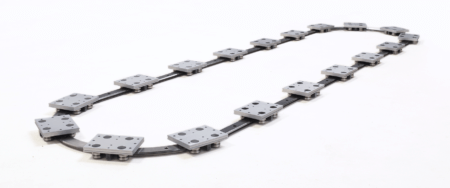
The two-stage inspection of the inner doors of the different BMW models, takes place according to the continuous flow principle and lasts between 16 and 20 seconds. The system can check up to 3,200 doors a day before they are installed. The first of four stations is the insertion area. Here, all four doors are manually fitted between the synchronised switched V-guides, into precision-contoured frames, whilst being conveyed through the system, so that testing on both sides is possible. A scanner finally determines the particular door type; an essential first step, as there can be more than 40,000 variants of a single car door.
The test consists of a current and voltage test as well as checking whether all the connectors are present and functioning and whether the light switches are electrically connected. The system also checks that all the components are properly fitted on both sides. In addition, the door lights are inspected for shape, ambience and identical luminance. This procedure alone covers quite a number of test item.
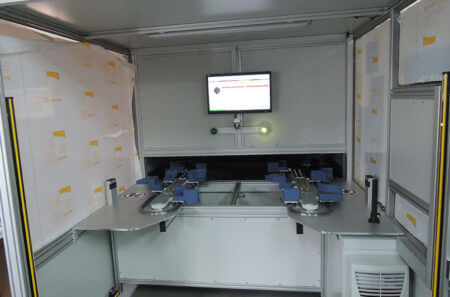
HepcoMotion’s Consulting Engineer Alexander Slubik adds: “The trend towards a one hundred percent test is growing, including a general demand for quality. With the new BMW models, the decorative LED lights create atmosphere in the passenger compartment. The system tests all the electrics and also the lighting and determines whether the lighting is uniform, whether there are any colour differences or other defects.”
No signs of wear for year
The two systems run parallel to each other and are not mechanically connected with each other; therefore they must be precisely positioned and aligned. They work in a master-slave process with both motors being controlled by Beckhoff units. According to Heinz Panzer, both carrier units run in synchronisation, accurate to one tenth, while the state-of-the-art technology ensures that in spite of frequent accelerations and abrupt stops, nothing shifts, catches or falls down. “The required positioning accuracy is always achieved.” adds Alexander Slubik, HepcoMotion Consulting Engineer. The precision ensures that the measuring devices are accurate. This makes data processing easier and errors are minimised.”
“With the original chain conveyors, we always had to work with dry lubricants and tension the chains regularly if they had lengthened too much; over a period of six years running time we usually had to change them twice. With the maintenance-friendliness of Hepco V guide systems we are confident that over the same time frames, there will be no signs of wear and tear whatsoever, and the fact that the system can run lubricant free is an added bonus.”
L&_P supplied additional “DoorChecks” at the beginning of 2016 and because the feedback was overwhelmingly positive, the company has began to fit similar systems with HepcoMotion V Guide systems.

